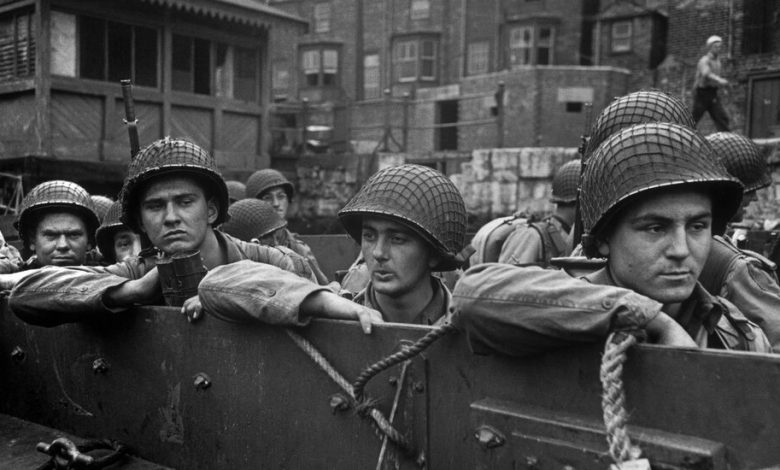Why We Must Keep the Memory of D-Day Alive

Day by passing day, the Greatest Generation is coming toward its end. D-Day, June 6, 1944, had more than two million Allied personnel on the move across Operation Overlord, and today perhaps a few thousand veterans remain.
In 2021, Harry Parham, believed to be the last Black combat veteran of D-Day —about 2,000 Black troops landed that day — died at 99. Last July, Leon Gautier, the last surviving French commando at the Normandy landings, died. In December, it was Maureen Sweeney, the Irish weather observer whose reports of storms over the Atlantic changed the course of D-Day. In April, it was Bill Gladden, who had been part of the British Sixth Airborne Division’s glider landing on that day and had hoped, at age 100, to survive to return to Normandy, France, for Thursday’s 80th anniversary.
As we mark the final passing of those who won that war, it’s easy to get caught up in gauzy romanticism and lose sight of how the Axis powers unified the free world against them and showed Americans, specifically, what we are capable of.
Every serviceman headed to Normandy was handed a “Pocket Guide to France” that read, in part: “We democracies aren’t just doing favors in fighting for each other when history gets tough. We’re all in the same boat. Take a look around you as you move into France and you’ll see what the Nazis do to a democracy.”
This election year it is worth asking what we are doing with the legacy that the Greatest Generation defended and bequeathed to us. American freedom has always been imperfect — a nation seeking, generation after generation, to be better, more equal, more inclusive and still more free. It is a story of hard-fought rights and bloodily defended liberties that each generation of Americans has handed down to the next, a vision for a future in which each successive generation will improve upon the past.
We now face the very real question of whether America will embrace a vision of a country less free and less democratic, more divided and more unequal. It would be a step backward unlike almost anything else in American history.
